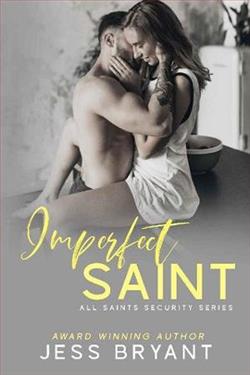Page 18 of Love Among the Shadows
Darcy nodded in agreement. "I’ll leave it to you. I’ll follow your lead."
"Good," Fitzwilliam replied with a quiet nod, adjusting his coat as if readying himself for the task ahead. "The sooner we start, the better. At least, before another life is lost."
***
Elizabeth Bennet was scarcely able to rid herself of the astonishment Mr Collins's proposal had caused when another shock was to come—though it was not of the sort she had anticipated. Three days had passed since she had rejected him with all the firmness her conscience demanded, and, though she had expected him to make some disturbance, he behaved with an air of untroubled composure. He returned to Longbourn onthe very evening of his rejection, appearing as if no affront had been suffered. Mr Collins, despite the mild disappointment he might have been feeling, said little—too little for her taste—and, when her mother dared to inquire about the matter, he simply remarked, “Cousin Elizabeth has refused my offer, and there is little I can do about it.”
Elizabeth was taken aback by the indifference with which he spoke of his rejection, but she soon discovered that Mr Collins’s stoicism would not last. Over the next two days, he made daily calls to Lucas Lodge, visiting the home of Charlotte Lucas with an energy that seemed to rival his previous attempts at courting Elizabeth. Elizabeth, though she had not spoken of it to anyone, was struck with the realization that perhaps Mr Collins, rather than being a man of profound self-pity, would direct his affections elsewhere—and with no small success, if Charlotte were to entertain him.
On the night of her rejection of Mr Collins, Charlotte had come visiting, and Elizabeth, with no small measure of forthrightness, had confided in her friend. She spoke plainly about her refusal, declaring that she could never marry a man she did not love, let alone someone like Mr Collins. “I could never marry him,” Elizabeth had said, shaking her head emphatically. “He lacks everything that would make a marriage worth having—intellect, heart, anything but the cold assurance of his future prospects. I couldn’t marry him if he were the last man on earth.”
Charlotte had listened quietly, offering no judgment but clearly mulling over Elizabeth's words. Though Elizabeth felt sure that her friend would understand her, she could not help but feel an undercurrent of unease. Charlotte was practical, and perhaps more pragmatic than Elizabeth herself; after all, they had been raised with similar expectations about the necessity of marriage. But that night, Elizabeth believed Charlotte couldnot possibly understand her decision—not when Mr Collins had come to offer his hand, and the prospect of security seemed so near.
However, when Charlotte did appear at Longbourn on the third day after their conversation, Elizabeth immediately sensed that something was amiss. The usual calmness in Charlotte’s expression was absent, replaced by an unfamiliar hesitation. Charlotte seemed unwilling to meet Elizabeth’s eyes, and Elizabeth's heart sank with the rising certainty of what was to come. She could not, for the life of her, have imagined what was about to unfold.
“Lizzy,” Charlotte began quietly, her voice carrying a tremor of uncertainty, “I must tell you something.”
Elizabeth’s thoughts swirled in confusion as she looked at her friend. "What is it, Charlotte?" she asked, her voice thick with the dread of knowing something she did not want to hear.
“Mr Collins has asked me to marry him. And I have accepted.”
The words struck Elizabeth like a blow, and for a moment, she could do nothing but stare at Charlotte, her mind racing, unable to comprehend. Charlotte—her sensible, pragmatic friend—had accepted Mr Collins?
“Charlotte!” Elizabeth exclaimed, her voice full of disbelief. “But you—how could you?” She shook her head in confusion. “You know him! You know he is not a man of substance.”
Charlotte flushed but did not look away. “I know what you think, Lizzy. I know he’s not someone you would ever consider marrying. But you must understand—marriage is not always about love. Mr Collins offers security. A future. A home.” Her voice softened as she continued, “In this world, that is all a woman like me can hope for.”
Elizabeth's heart twisted. She could not understand how her friend could reconcile herself to such a future. The idea of being so practical, so resigned to a life without affection, felt foreign to her. But she could see, as Charlotte spoke, that there was an unspoken acceptance in her voice—a resignation, perhaps, but also a strange contentment.
“But Charlotte,” Elizabeth said, her voice now quiet, “You can’t possibly think this is what you deserve.”
Charlotte met her gaze and smiled faintly. “I do not expect passion from Mr Collins. I only expect respect and security, and in these things, he is more than adequate. What is love, if not the understanding that I am provided for, that I will not have to worry about my future?” She paused, as if weighing her words carefully, then added, “I am not foolish enough to wait for something that may never come. I want a stable life, and with Mr Collins, I will have that.”
Elizabeth stared at her, speechless. She could not deny that Charlotte was right, at least from a practical standpoint. In their world, a woman’s choices were often limited to such arrangements. But it was hard to watch her friend make a decision that seemed so devoid of the warmth that Elizabeth had always valued in life and love.
“Will you be happy, Charlotte?” Elizabeth asked, her voice low with concern.
Charlotte gave a small, almost imperceptible smile. “I shall be content, Lizzy. I think that is all one can ask for.”
Elizabeth nodded, though a heavy sadness filled her chest. What Charlotte was choosing,what she had chosen, was the sensible option. But Elizabeth could not help but feel that Charlotte had given up on her own dreams, that she had resigned herself to a future of quiet, unspoken sacrifice.
The conversation ended soon after, but the weight of Charlotte’s decision hung in the air between them. Elizabethwalked her to the door, the finality of Charlotte’s words echoing in her mind. She would be content, but at what cost? As Charlotte left, Elizabeth was filled with an overwhelming sense of grief—not just for her friend’s decision, but for the world they lived in, where such choices had to be made.
In that moment, Elizabeth knew that she could never sacrifice her own happiness as Charlotte had done. She could never settle for anything less than love, no matter the consequences. But she also understood that, perhaps, she was a rare exception in a world where security often came at the expense of the heart.
As Charlotte left Longbourn, Elizabeth’s thoughts turned inward. She would never, ever, marry a man for convenience. But she could not help but wonder—what would Charlotte’s life be like? Would she ever come to regret this choice, or would she learn to find contentment in it? Elizabeth could not say, but she could only hope that Charlotte’s future, though unconventional in her eyes, would bring her the peace and security she so clearly sought.
Elizabeth’s mind swirled with these thoughts long into the night, a mixture of sorrow and resolve filling her heart. She had made her choice—and she would never give up on the hope that love, true love, would come for her someday.
Eleven
The following morning, Colonel Fitzwilliam arose with a sense of purpose that could not be denied. He had pressing matters to attend to, and he wasted no time in seeing them through. His first order of business was a meeting with Colonel Forster, the head of the local militia, a man of no small reputation for intellect and experience. The two met in a private room at his house, where Fitzwilliam began his inquiry.
"Colonel, I am most grateful for your time," Fitzwilliam began, after he had explained his relationship with Darcy and the dilemma he was in. "I require your assistance in identifying any individuals who may have been involved in these tragic events. Specifically, I must know who attended the Meryton assembly. Mr Bingley has already provided me with a list of those present at the Netherfield Ball, but I shall need your help with the Meryton Ball, should Sir William Lucas be unable to assist."
Colonel Forster was a tall, lean man, his posture exuding the quiet authority of one accustomed to command. His militia uniform, though well-worn, was impeccably kept, a testament to his disciplined nature. His sharp, discerning eyes revealed a mind honed to observe the slightest detail, always calculating, always alert.
“I see,” he said in a baritone. “You suspect the deaths are connected to those arguments, do you? An interesting theory.” He paused, rubbing his chin as he considered the possibility. “After the first death, the magistrate sought my assistance with the investigation. At the time, I thought it a futileendeavour, considering the deceased’s fondness for wine and his mounting debts. But now that you put it in such terms, I can begin to see the patterns emerging.”















